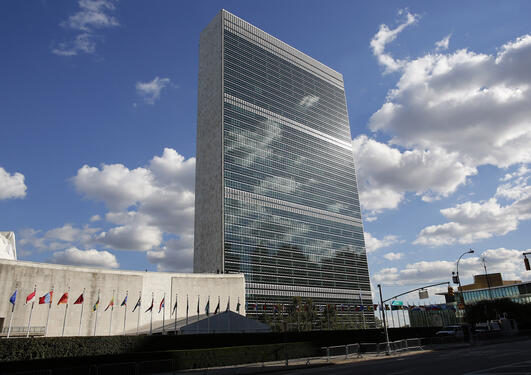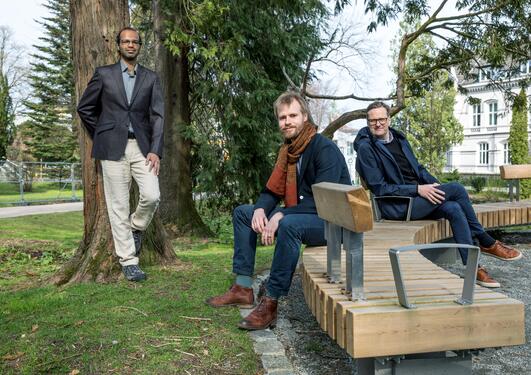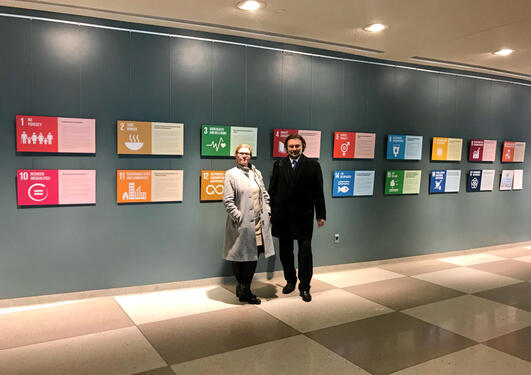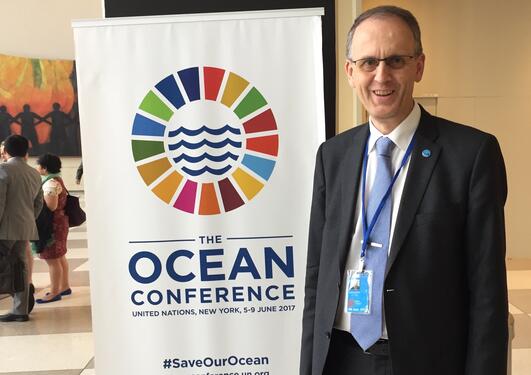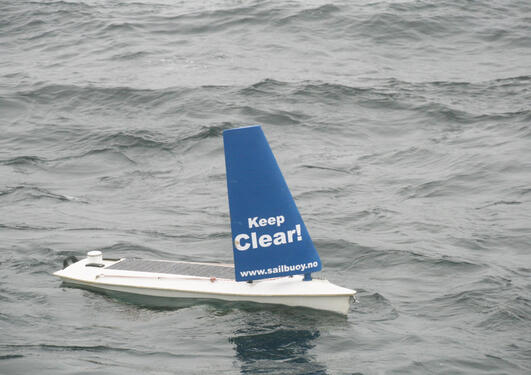Putting Bergen energy research on world map
Director for Energy Kristin Guldbrandsen Frøysa is satisfied that the University of Bergen has been able to present its innovative energy research at the United Nations High-level Political Forum.

Main content
“My role has been to represent the University of Bergen (UiB) and to show that the institution stand fully behind the important work our researchers do to engage with the Sustainable Development Goals (SDGs) and 2030 Agenda,” says UiB's Director for Energy Kristin Guldbrandsen Frøysa on participating at the 2018 High-level Political Forum (HLPF).
In July 2018, Guldbrandsen Frøysa was part of a UiB-delegation headed by Vice-Rector for Global Affairs Annelin Eriksen. The delegation was also comprised of Professor Edvard Hviding from the strategic initiative SDG Bergen as well as Postdoctoral fellow Siddharth Sareen and PhD Candidate Jakob Grandin from the Centre for Climate and Energy Transformation (CET).
Inspired by young researchers
Together with some of the world's leading SDG-oriented universities, Grandin is co-arranger of a workshop hosted by UN DESA (Department of Economic and Social Affairs).
“Sareen and Grandin have done the research behind our presentations at the HLPF. It is incredibly inspiring to watch how CET has built a team of young enthusiastic researchers with a focus on publishing in academic journals as well as contributing to shaping political decision making through policy briefs,” says Guldbrandsen Frøysa.
Sareen represented the academic community at Norway's official HLPF side event, Global agenda for SDG 7 Action, where he talked about his contributions to two policy briefs on SDG 7: Ensure access to affordable, reliable, sustainable and modern energy for all.
“I have a strong connection with SDG 7 as I have worked with sustainable energy production and in particular offshore wind energy, which is growing rapidly in Europe. Sustainable energy is connected with many other SDGs, such as education for all, ending poverty and gender equality,” says the director for energy.
Guldbrandsen Frøysa and Sareen are also engaged in the Bergen Energy Lab, a forum for exchange of information on research results and activities related to renewable energy and energy transition.
Creating future opportunities
For Guldbrandsen Frøysa participating at the UN's HLPF has been useful and she believes UiB should show more of a presence at this type of arena in future.
“Not the least this has been an excellent opportunity to create connections with partners we can work with in the future. Partnerships are the key for work towards the 2030 Agenda,” she says, “and several of our researchers, in particular Peter M. Haugan and Edvard Hviding, have experience with science diplomacy and giving scientific advice. It is natural for us to get research environments across all disciplines to contribute. This is why the leadership at UiB is present to signal support for this work.”
For UiB to succeed with scientific advice, she want to mobilise across disciplines. Yet at the same time she underlines that participation must be voluntary and based on research groups seeing benefits from working towards policy makers.
“At this year's HLPF, UiB has positioned itself as a university with a focus on renewable energy and energy transformation by showing our research and education activities to a number of stakeholders in the 2030 Agenda,” says Kristin Guldbrandsen Frøysa.
